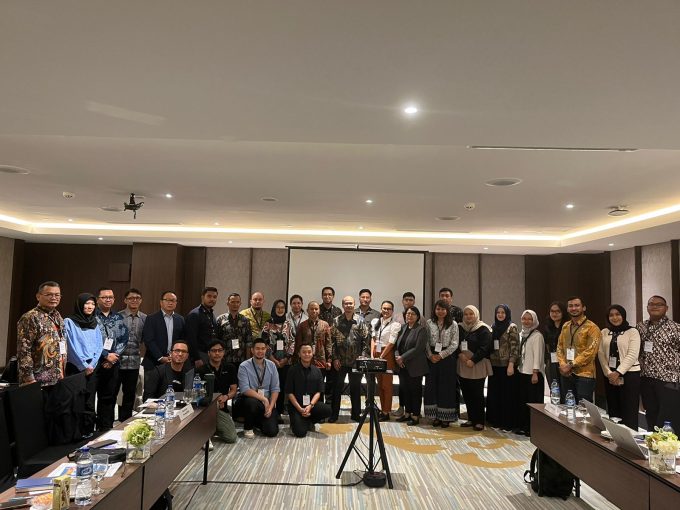
Yogyakarta, October 31st 2023─Center for Digital Society (CfDS) FISIPOL UGM held an ESG dialogue session on Tuesday (31/10) at Ashley Hotel Tanah Abang, Jakarta. ESG (Environmental, Social, and Governance) is a key approach that needs to be considered in the operation of the company. All fields of industry cannot escape the responsibility of reviewing environmental and social aspects. Many industries have begun to adopt ESG to address increasingly complex social and environmental issues, in order to improve business sustainability related to its relationship with society, commitment to protecting the environment, and actualization of accountability and transparency in practice.
As a study center that focuses on the impact of digital technology on economic and social aspects, CfDS underlines the importance of ESG principles so that they can be more widely implemented and accounted for by industry players and the benefits can be felt by society. Therefore, the application of ESG in the industry is very urgent.
Present at the discussion was Oktofa Yudha Sudrajad (Lector of the Business and Financial Risk Working Group, School of Business and Management, Bandung Institute of Technology [SBM ITB]). He said that currently, topics surrounding ESG are often discussed with various definitions. ESG impact is an important consideration in terms of profit and also social impact. In Indonesia, implementing a standardized ESG framework is still a challenge for various parties.
“Credit ratings are often used because they are already established. But, sometimes this conflicts with the ESG rating. If we talk about sustainable finance, there is green financing, there is ethical investment, so many definitions. But, sustainable development covers everything. When we look at the research side, the keyword that still appears a lot at first is CSR, then it develops into the environment,” said Oktofa.
The government has prepared regulations and various incentives for industry, including the financial technology sector, to adopt green investment. According to Binsan Siregar (Young Expert Investment Management Manager at the Ministry of Investment/BKPM), the Ministry of Investment is making several breakthroughs, such as improving the investment climate, building an Online Single Submission (OSS) system for platforms, and simplifying the administration of MSME business permits.
“However, we must continue to adapt how we follow global trends, such as climate finance issues and others. We need to learn how to face and package our projects by paying attention to sustainable investment,” added Binsan.
Overseeing the implementation of ESG aspects cannot be solely assigned to one party. Benchmarking and application frameworks, as well as evaluations which are still minimal in Indonesia, are challenges for future discussions in the study of ESG indices in the financial industry. ESG principles start not from governance, but from global public awareness of environmental problems, so that the indicators that are prepared follow complex and cross-sectoral problems.
The implementation of ESG also receives full attention from the Government. Binsan explained that there are indeed several incentives that have been given to business actors who have implemented ESG, especially those in the extractive industry. The government will of course consider other sectors in future planning, both fiscal and non-fiscal incentives, such as making it easier to do business.
This agenda is in line with SDGs 11, namely Sustainable Cities and Human Settlements, and SDGs 17, namely Partnerships to Achieve Goals.
